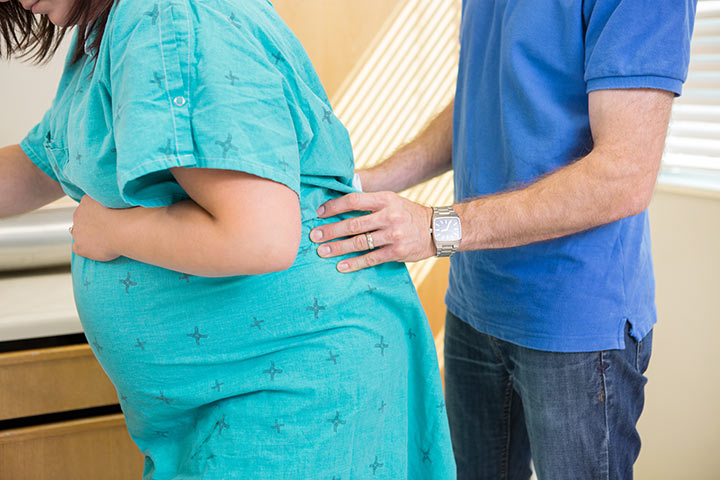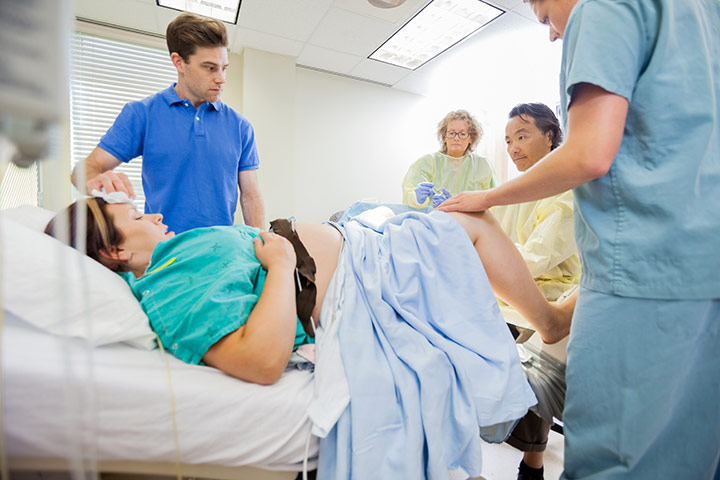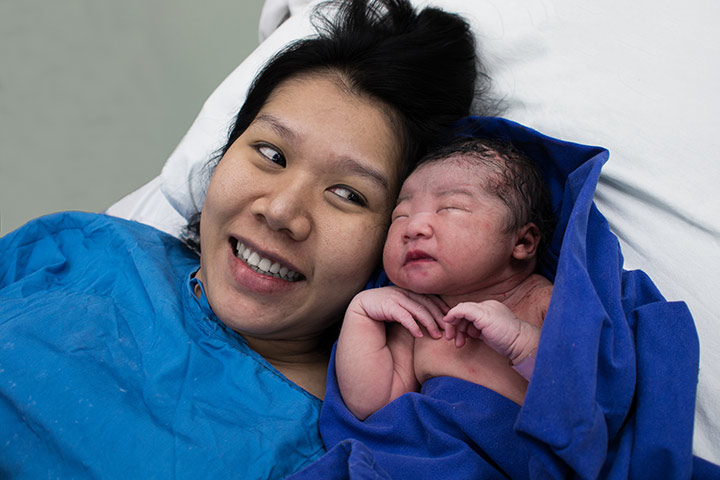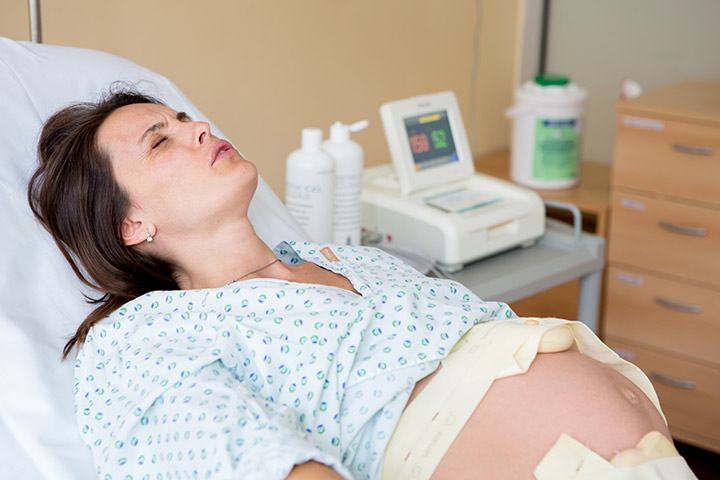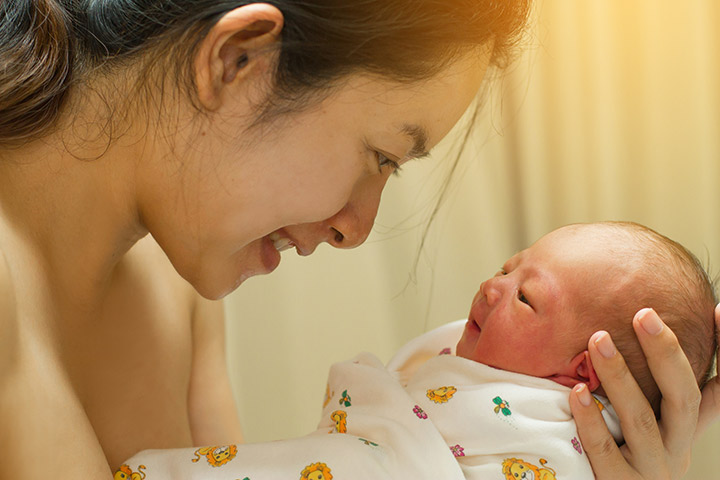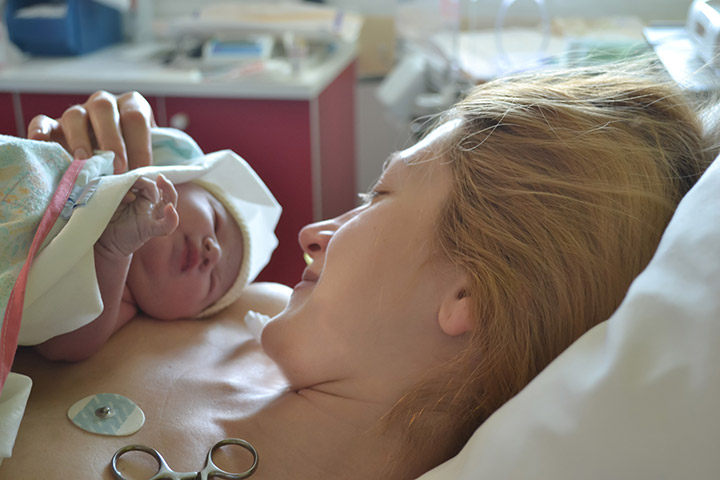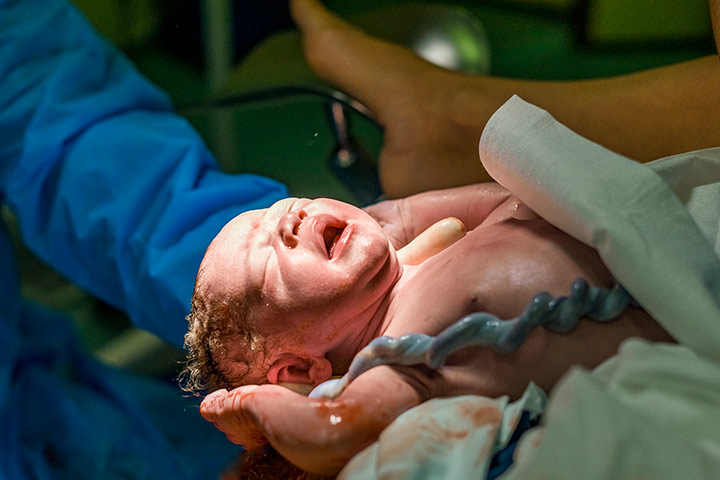
Image: Shutterstock
From the second a couple comes to know that they are going to be parents soon, they patiently wait for the D-day. But childbirth can make any new parents extremely nervous too. This is because it’s pretty unpredictable what type of delivery a pregnant woman might end up with – either a normal vaginal delivery or a C-section. This entirely depends on the situation in the labor room. And often, pregnant women become quite apprehensive about ending up with a C-section. Here we bring you the most common reasons which might result in a C-section:
1. Your Labor Fails To Progress
Picture this: you’ve gone into active labor, reach the hospital and get wheeled into the labor room. You might even start pushing and suddenly, there’s a complete standstill. It can happen due to your cervix failing to dilate completely, the position of the baby not being optimal, or the labor simply slowing down or stopping (1).
2. The Baby’s Position Is Breech
Usually, a baby’s position during delivery changes to a head-first position, which is ideal to pass through the narrow birth canal. But sometimes the baby’s position fails to change even during active labor, resulting in a breech position. Here the baby’s buttocks come first making it difficult for the mother to push through. A C-section might become the safest option in this scenario (2).
3. You May Be Pregnant With Multiple Babies
If you are pregnant with twins, it might be possible for you to have a normal delivery depending on their weight and position. However, in the case of triplets or more, the likelihood of you having a C-section increases (3).
4. Large Size Of Your Baby
If you have diabetes or acquire gestational diabetes during your pregnancy, it is imperative that you keep it strictly under control. This is because it might result in your baby growing too big to pass through the birth canal. Thus, making a strong case for a C-section (4).
5. Critical Health Condition
Certain health conditions like diabetes or preeclampsia might become a concern during pregnancy. In preeclampsia, the pregnant woman experiences high blood pressure. Extremely high blood pressure during delivery might result in complications thereby requiring a c-section surgery (5).
6. Previous C-Section Delivery
If you’ve had previous c-section surgery, you can still have a VBAC (vaginal birth after cesarean). The biggest hurdle in VBAC, though, is a uterine rupture, which could affect 0.2 to 1.5% of such cases. However, there are other factors to consider if you wish to have a VBAC. For this, your doctor is the best person to consult (6).
7. Placenta Previa
Placenta previa is a condition wherein the placenta lies very low in the uterus and ends up blocking the cervix either completely or partially. In such a scenario where a complete or even partial placenta blockage is diagnosed, a c-section often becomes necessary (7).
8. Uterine Rupture
Uterine rupture is a condition where the uterus ruptures or tears during labor or pregnancy. It affects 1 in 1500 childbirths approximately. This can cause excess hemorrhage in the mother and disrupt the oxygen supply to the baby. All this is reason enough to want a C-section (8)
9. Nuchal Cord
During pregnancy, there are chances that the umbilical cord might wrap itself around the neck of the fetus completely. This umbilical cord loop around the fetal neck is called the nuchal cord. It occurs due to reasons such as an unusually long umbilical cord, excess amniotic fluid, multiple pregnancies, etc. Nuchal cords are generally harmless unless they interfere with your baby’s breathing or heart rate. This is why doctors continuously monitor you if they find the nuchal cord and suggest an emergency C-section if necessary (9).
These are some of the common reasons that might result in a C-section. C-sections are done to ensure yours and your baby’s safety. So, if your doctor feels that a C-section is absolutely necessary, then go for it. Remember, irrespective of the kind of delivery you have, you are still an amazing mother. Kudos to you!

